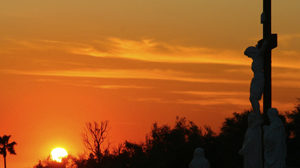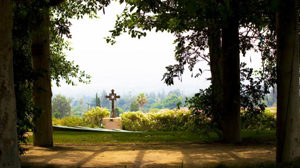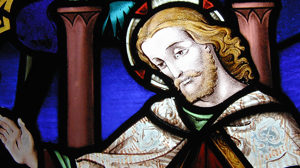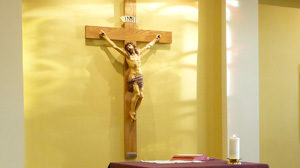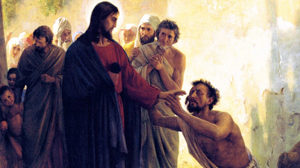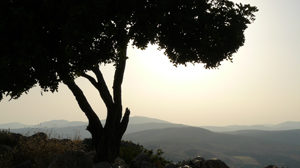Daniel 5:1-6, 13-14, 16-17, 23-28
Luke 21:12-19
Reflection:
Jesus has just recounted probably one of the most significant financial transactions recorded in the scriptures. It is the story of the Widow’s Mite. A person who gave her last cent to the temple treasury. This theme of generosity without counting the cost is carried on as this chapter continues. Jesus speaks of the sufferings of the Messiah, and almost parenthetically about the sufferings the disciples will have to endure.
Jesus does not promise that things will get better and better. Jesus does say that God can bring good out of evil, right will triumph over wrong. The disciples will be “handed over” to the religious leaders of the synagogues and the Roman authorities. Words that appear again in the Passion Narratives. These atrocities will be done by their parents, their siblings, and their friends. Some will even be put to death. These things were actually happening to the Lucan Community to whom these words are addressed.
Jesus tells his listeners #1. In these times of trial and persecution do not worry, the words you need will be given to you. They will be so profound the enemy will be muted. #2. You will need patient endurance and you will be saved. The severity of the persecution will be measured by the certainty of God’s protection.
Jesus tells us we can not escape from life, but must enter into it. Disciples can not be by-standers to life. When Christians enter into life it takes on meaning, by entering into suffering (addiction, pain, etc.) freedom is found, etc. We do it “for my sake!” Victor Frankel, a survivor of the holocaust, said: “A life without meaning is not a life. To live we must choose. To love we must encounter. To grow we must suffer.”
In this little periscope there are clues of how to encounter God. Like the widow we have to reach into the purse of our minds and hearts and find the patience, the kindness, the generosity we need when our lives are interrupted by the unexpected. When we think we have given our all, we are reminded to find within the “patient endurance” needed to encounter life’s setbacks. Jacob had to wrestle with the angel and wouldn’t let him go. He said (Gn. 32:25-26) “I will not let you go unless you bless me.”
Sometimes people or circumstances appear out of the unexpected and must be addressed. We can not let them go until we realize they are a blessing for us. We know like Jacob, the widow and the disciples if we engage life generously we can expect to encounter God.
Fr. Ken O’Malley, C.P., is the local superior at Holy Name Passionist Community in Houston, Texas.

